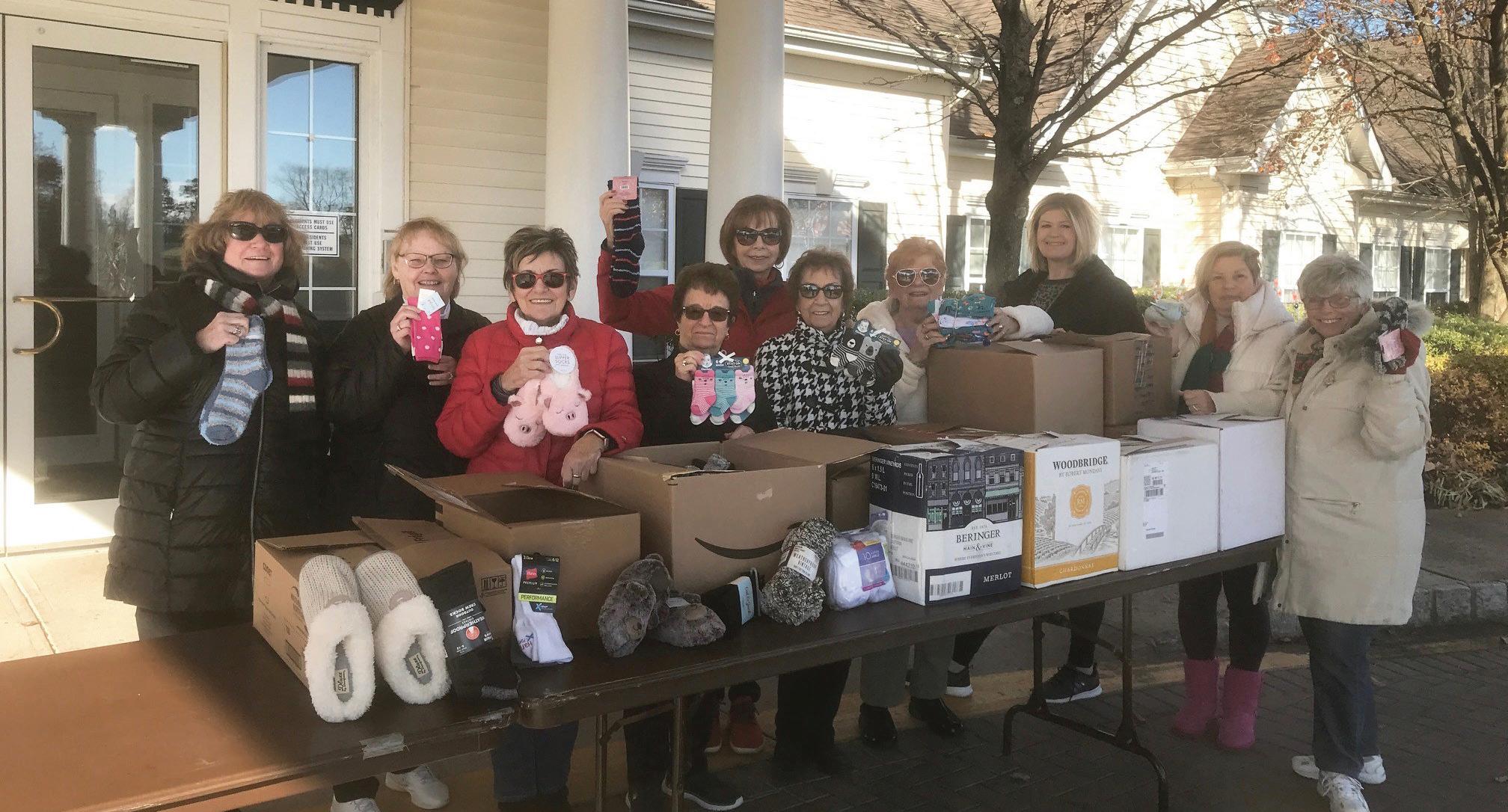
2 minute read
A BONDING EXPERIENCE
Members of MMCSC’s Better Health program built on connections they’ve formed to organize a neighborhood sock drive that supported outreach by one of the hospital’s community partners.
EVEN DURING A PANDEMIC, THE BETTER HEALTH PROGRAM BRINGS PEOPLE TOGETHER.
Testimony to the personal bonds formed in the Better Health program at Monmouth Medical Center Southern Campus (MMCSC) could be found recently in boxes of new socks—many boxes. “We had the entire back of an SUV filled with socks,” says Kelly DeLeon, MS, Manager of Community Health and Social Impact and Community Investment at MMCSC.
Members of Better Health—a free wellness membership program for people age 55 and over that was established in 2015—had built on friendships formed in the group and self-organized a neighborhood drive. Many participants were also members of the hospital auxiliary. Sock donations were dropped off at an outdoor collection site and delivered to Greater Bethel Church of God in Christ, which works with people in the community, especially many who are homeless or living in public housing.
Gathering socks may not specifically be part of the Better Health mission—but socializing is, especially when it supports an MMCSC community partner such as Greater Bethel. “We like to bring people together,” DeLeon says. “Those interactions are shown to have health benefits.”
PANDEMIC PIVOT
MMCSC’s pioneering Better Health program is built on four pillars. Socializing is one. The others are evidence-based health education, nutrition and physical activity. Before the COVID-19 pandemic, live events were held on the MMCSC campus or in community venues such as senior centers, neighborhood facilities or faithbased sites.
“With COVID, we went online with virtual programs,” DeLeon says. Healthcare experts provided seminars on topics such as heart health and COVID-related updates on vaccines and variants. Cooking class participants attended from their own kitchens using dinner-kit ingredients that a local longterm care facility provided ahead of time. Exercise class turnout actually went up. “People loved the convenience of doing classes right in the comfort of home with the camera on so instructors could monitor how they’re doing,” DeLeon says. Weekly emails keep members apprised of happenings.
DeLeon looks forward to the day when live/virtual hybrid programs can be offered to better accommodate members who don’t have access to digital devices or don’t like to use them. But virtual programming options are likely here to stay. “We take pride that we’ve continued doing what we can virtually like we did in person,” DeLeon says.
Whatever the format, camaraderie develops. “If an online presenter is a few minutes late, participants greet each other by name and chat about what they’re reading or streaming,” DeLeon says. The program has held virtual holiday parties, trivia games and scavenger hunts, she says—“anything to get together.”
For more information about the Better Health program at Monmouth Medical Center Southern Campus or to become a member, visit www.rwjbh.org/betterhealth.










